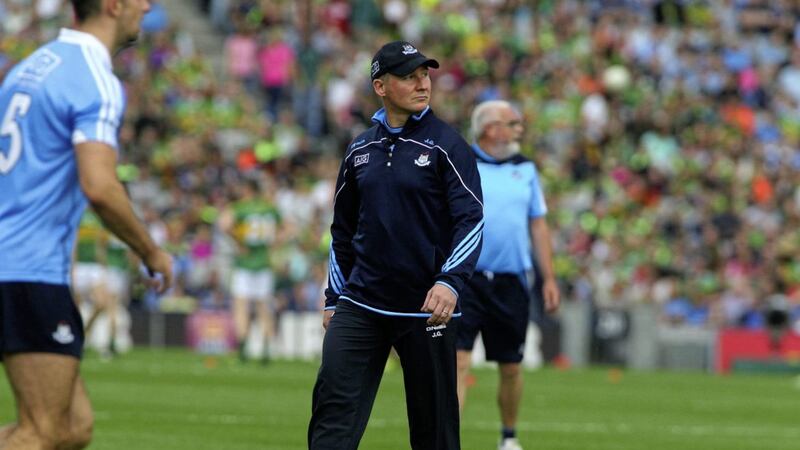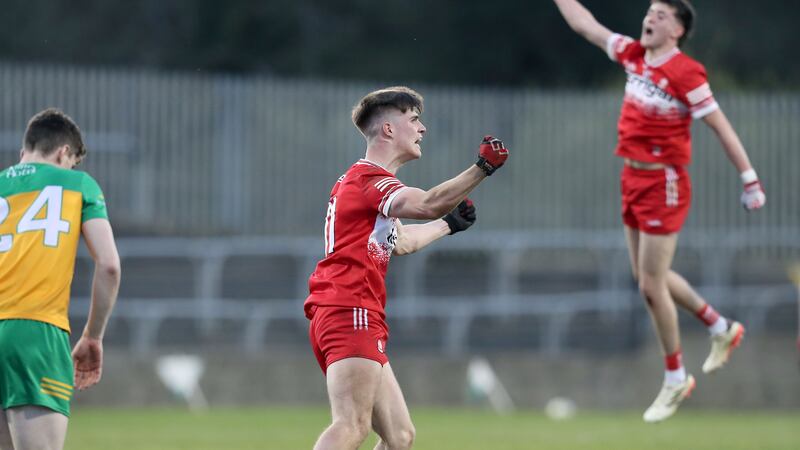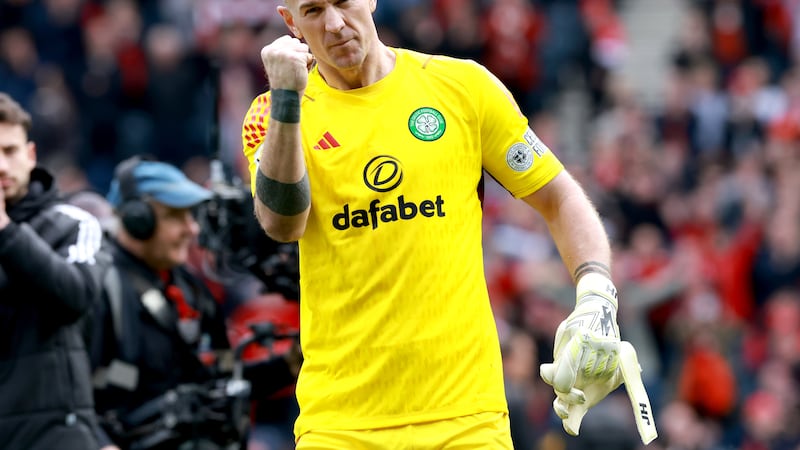I AM not a golf enthusiast. If I went golfing, a strimmer would probably be required more times than a pitching wedge.
The Masters a`t Augusta is the only golf tournament I watch on TV and, even then, it’s only the last two days.
I am not a Tiger Woods fan. In a time of bandwagon jumpers, I don’t consider myself one.
A lot has been said and written about his rise and fall, especially since his remarkable win last weekend.
Now, in addition to his latest Green Jacket, which ended an 11-year wait since Woods last won a Major title, he is set to receive the highest honour an American citizen can receive – the Presidential Medal of Freedom.
But for all these accolades, in a great deal of cases the biggest thing any star such as Tiger misses when they aren’t winning is the limelight itself.
Social media increasingly taps into this desire in a more subtle and invasive everyday way.
We are led to believe that we are missing something if we aren’t on social media of some kind – to feel informed, to feel relevant and included in society and that our opinion matters to those who are friends or ‘followers’.
The more followers we have, the more relevant or ‘liked’ we are.
This is psychological warfare, fought in the heads of the conscious and subconscious.
I am no different, I am on Twitter and Facebook. Would I prefer not to be? Probably.
I recently came across a notice in a business which read: ‘Please do not ask for Wifi – here we like to talk to each other.’ Another read: ‘Facebook – destroying people’s lives since 2004.’
When you think about the impact social media has had on people’s lives, it is really quite astonishing, and sport has not been immune.
From a sporting perspective it has been brilliant and informative, allowing us to access material which we otherwise wouldn’t have the opportunity to read.
We can follow live results and the benefits have been significant.
But, on the flip side, you often feels like you don’t have to be correct with the information you put out into social media, you just have to be first.
And when something is sent out into the world via social media, it’s there forever, no matter what platform you are using.
In the past, the media has always been used to effect results and sporting performance.
Alex Ferguson used it to great effect when Alan Hansen famously said on Match Of The Day “you can’t win anything with kids” after Manchester United lost the opening match of the 1995-’96 Premier League season.
Ferguson reminded his young squad of this as they went on to lift the title.
Closer to home, after Down manager Paddy O’Rourke jumped to naturally celebrate goals raining in against Tyrone in the 2003 Ulster final, Mickey Harte posted photographs of the same celebrations on the changing room wall for the replay.
Muhammad Ali was a genius at manipulating the media – it isn’t a recent phenomenon.
Most managers I played under were very wary of the media.
Perhaps their experience of playing and managing over the years taught them harsh lessons.
Social media is instant and pretty unforgiving.
It has the ability to make people, but it can also destroy them.
Dublin manager Jim Gavin must be a nightmare for journalists as he is never going to come out and say: “Listen, we expect to win by at least 10 points in Leinster, if we play to our potential.”
Instead it’s: “They are stern opponents and we expect a very close and tough encounter.”
I wonder if a manager would ever take the road less travelled.
At the end of the day, when you are trying to instil confidence in players, you have to believe that the manager is equally confident, so what is there to lose by saying that?
You may, and probably will, be wrong some day, but that’s OK. It didn’t bother Bill Shankly and Brian Clough.
I understand playing down hype, I understand painting yourself as the underdog in any contest.
But you can only imagine the social media reaction if a manager or player were to take a careless approach and say what they actually think.
I would suggest the social media response would be unforgiving.
These conversations, which were previously conducted in a semi-private manner in the living rooms, kitchens, bars and clubrooms of the past, perhaps under the influence of alcohol in some cases, are now ‘out there’ for everyone to see, including the people they are aimed at.
The idea that most sportspeople, at any level, do not suffer from insecurities, doubts and low confidence couldn’t be further from the truth.
Thankfully I played all of my county career without the need to use or be on social media.
I can imagine my insecurities would have been heightened had social media been a thing.
But for today’s players, the increased scrutiny must be a source of anxiety with the possible damage to one’s confidence and career potentially life-changing.
One only has to consider that many years ago a disagreement on the field or playground was sorted out there and then.
Now it follows you home, into living rooms and bedrooms, supposed ‘safer’ spaces.
As a parent, I do fear what the future holds for kids in sport, and indeed in life.
The impact social media can have going forward is a battle I don’t think we can win – but rather just manage.








